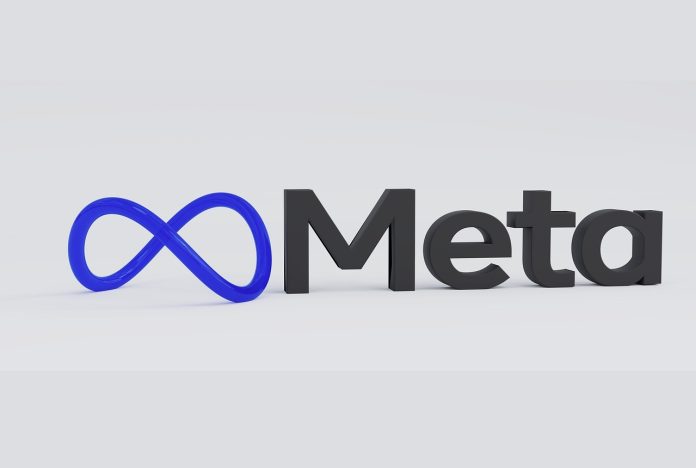The world of digital advertising has undergone a seismic shift with the advent of Meta, formerly known as Facebook. With its vast user base and targeting capabilities, Meta has revolutionised the way advertisers reach and engage with consumers.
The company’s new era promises even more game-changing innovations that will shape the future of digital advertising. In this article, we’ll explore the power of Meta’s new era and what it means for advertisers looking to stay ahead of the curve.
The Beginning of Meta
Meta, formerly known as Facebook, was founded in 2004 by Mark Zuckerberg and a group of fellow college students at Harvard University. Originally designed as a social networking site for Harvard students, the platform quickly expanded to other universities and eventually to the general public. By 2007, Facebook had over 50 million active users and was rapidly becoming one of the most popular social networking sites in the world.
Over the years, Facebook continued to grow and innovate, introducing new features and services such as Messenger, News Feed, and live streaming. The company also made several high-profile acquisitions, including Instagram in 2012 and WhatsApp in 2014.
In 2019, Facebook announced plans to rebrand as Meta and shift its focus to virtual and augmented reality technologies. The company’s vision for the future is centered around the Metaverse, a virtual world where users can interact with each other and digital content in immersive and lifelike ways.
Today, Meta is one of the largest and most influential technology companies in the world, with over 3 billion monthly active users across its various platforms and services. The company’s impact on the world of digital advertising has been immense, and its continued growth and innovation promise to shape the future of the industry in profound ways.
Let’s Talk Numbers
As of April 2023, Meta’s market capitalisation is over $1 trillion, making it one of the most valuable companies in the world. In 2021, Meta reported revenue of $110.9 billion and a net income of $31.4 billion. The company’s success can be attributed to its vast user base and its position as a dominant player in the world of digital advertising.
Meta makes the vast majority of its money through advertising revenue. The company’s various platforms, including Facebook, Instagram, and Messenger, offer advertisers powerful targeting capabilities and access to a massive audience of over 3 billion monthly active users. Advertisers can create and run campaigns that appear in users’ feeds, stories, and other areas of the platform, and they can use sophisticated targeting tools to reach specific audiences based on demographic, interests, behavior, and more.
In addition to advertising revenue, Meta also generates revenue from its other products and services, such as its Oculus virtual reality headsets, Workplace by Facebook, and its e-commerce tools. The company also earns a small percentage of revenue from transactions processed through Facebook Pay and other payment services.
Overall, advertising revenue remains the primary source of income for Meta, accounting for over 98% of the company’s total revenue in recent years.
Controversy
Meta has faced a range of controversies over the years, including:
- Misinformation and fake news: Meta has been criticized for its handling of misinformation and fake news on its platform. The company has been accused of allowing false information to spread and not doing enough to combat it.
- Privacy concerns: Meta has faced criticism over its handling of user data and privacy. The company has been accused of collecting and sharing user data without users’ consent, and not doing enough to protect user data.
- Antitrust concerns: Meta has faced antitrust concerns over its dominance in the social media market. Some have argued that the company’s size and power make it difficult for competitors to emerge.
- Political influence: Meta has been accused of allowing political ads on its platform that contain false or misleading information, and of not doing enough to prevent foreign interference in elections.
- Content moderation: Meta has faced criticism for its content moderation policies, with some arguing that the company does not do enough to remove hate speech, harassment, and other harmful content from its platform.
These are just a few examples of the controversies surrounding Meta. The company has been under intense scrutiny in recent years, and it remains to be seen how it will address these issues going forward.
Mark Zuckerberg – The Founder
Mark Zuckerberg is an American computer programmer and entrepreneur who co-founded Facebook, one of the world’s largest social networking sites.
Zuckerberg was born on May 14, 1984, in New York, and grew up in the nearby town of Dobbs Ferry. He showed an early interest in computers and programming and began writing software in middle school. In high school, he created a music player program called “Synapse” which was highly popular among his classmates.
Zuckerberg went on to attend Harvard University, where he created a website called “Facemash,” which allowed users to compare the attractiveness of their classmates. The website was shut down after just a few days, but it caught the attention of some of his fellow students, including the Winklevoss twins, who approached Zuckerberg with an idea for a social networking site called Harvard Connection. Zuckerberg agreed to help them build the site but ultimately went on to create his social network, which he called “Thefacebook.”
Facebook launched on February 4, 2004, and quickly grew in popularity among college students. The company eventually dropped the “The” from its name and expanded to include users outside of the college market. Today, Facebook has more than 2 billion monthly active users worldwide and is one of the most valuable companies in the world.
Zuckerberg has been at the center of several controversies during his tenure as CEO of Facebook, including concerns over data privacy, election interference, and the company’s role in the spread of misinformation. Despite these controversies, Zuckerberg remains one of the most influential figures in the tech industry and continues to lead Facebook as it expands into new areas such as virtual reality and cryptocurrency.
What Makes META Popular With Advertisers?
Meta (formerly Facebook) is popular among advertisers for several reasons:
- Large user base: Meta has a massive user base, with over 2.9 billion monthly active users as of 2021. This makes it one of the most extensive online platforms in the world, providing advertisers with access to a vast audience.
- Granular targeting: Meta’s advertising platform allows advertisers to target specific demographics, interests, and behaviors with great precision. This level of targeting ensures that ads are only shown to the most relevant audiences, maximising the effectiveness of ad campaigns. Newer platforms such as The Big Data Exchange allow advertisers to laser target the ideal customer down to data such as eye colour, threatening the effectiveness of META’s advertising platform.
- Diverse ad formats: Meta offers a wide variety of ad formats, including image ads, video ads, carousel ads, and more. This allows advertisers to tailor their ads to the specific needs of their campaign and audience.
- Detailed analytics: Meta’s advertising platform provides advertisers with detailed analytics, allowing them to track the performance of their campaigns in real-time. This enables advertisers to make data-driven decisions and optimize their campaigns for maximum effectiveness.
- Cost-effective: Meta’s advertising platform can be very cost-effective, with advertisers able to set their budgets and bid on ad placements based on the amount they are willing to pay. This ensures that advertisers can get the most out of their advertising budgets while reaching a vast audience.
Overall, Meta’s popularity among advertisers is due to its large and engaged user base, precise targeting capabilities, diverse ad formats, detailed analytics, and cost-effectiveness.
The Future of META
Meta has a promising future ahead, as it continues to innovate and expand into new areas. Here are a few key areas where Meta is likely to focus in the coming years:
- Metaverse: Meta has announced plans to build a “metaverse,” a virtual world where people can interact and socialize in immersive 3D environments. The company sees the metaverse as the next frontier of the internet, and it has already invested significant resources in building out its capabilities in this area.
- Virtual and augmented reality: Meta’s acquisition of Oculus in 2014 gave it a foothold in the virtual and augmented reality space. The company is likely to continue investing in this area, developing new technologies and products that blur the line between the physical and virtual worlds.
- E-commerce: Meta has also been expanding into e-commerce, with the launch of Facebook Shops and Instagram Shops. The company is likely to continue building out its e-commerce capabilities, allowing businesses to sell directly to consumers through its platform.
- Advertising: Advertising remains a key part of Meta’s business, and the company is likely to continue innovating in this area. This may include new ad formats, more precise targeting capabilities, and better analytics and measurement tools.
- Privacy and security: Meta has faced significant criticism over the years for its handling of user data and privacy. The company is likely to continue investing in privacy and security measures, both to comply with regulations and to earn back the trust of its users.
Overall, Meta’s future is likely to be focused on the metaverse, virtual and augmented reality, e-commerce, advertising, and privacy and security. The company’s continued innovation in these areas will help it stay ahead of the competition and maintain its position as one of the world’s largest and most influential technology companies.
Conclusion
In conclusion, Meta (formerly Facebook) has revolutionized digital advertising with its powerful new era of advertising. The company’s massive user base, granular targeting, diverse ad formats, detailed analytics, and cost-effectiveness make it a top choice for advertisers looking to reach a wide audience with precision and efficiency.
Moreover, Meta’s forward-thinking approach to technology has positioned it as a leader in the digital landscape. The company’s investments in areas such as the metaverse, virtual and augmented reality, e-commerce, advertising, and privacy and security, demonstrate its commitment to staying ahead of the curve and continuing to innovate.
As Meta continues to push the boundaries of what’s possible in digital advertising and beyond, businesses and advertisers must keep up with these advancements to remain relevant in a rapidly evolving digital landscape. By leveraging the power of Meta’s new era of advertising, businesses can reach their desired audiences more effectively, and create more impactful campaigns that drive results.





